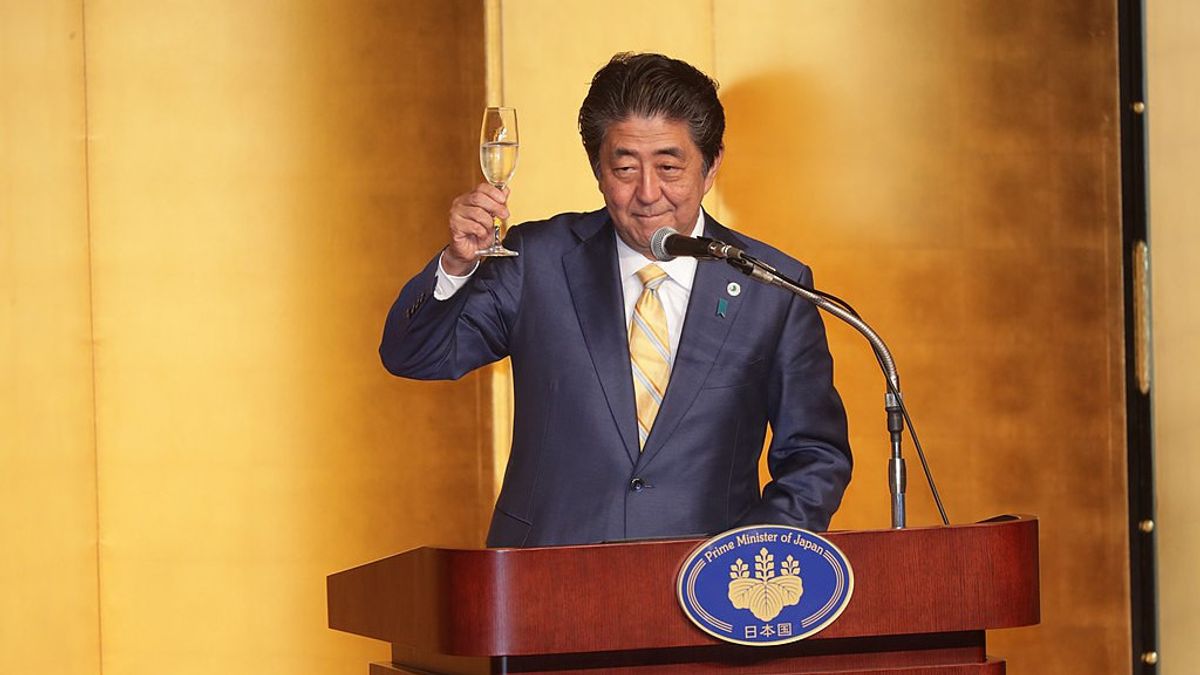JAKARTA - Japanese Prime Minister (PM) Shinzo Abe is again receiving treatment at the hospital, just as he was the longest serving head of government in the country. Last week Abe also received treatment at a hospital in Tokyo.
Launching CNN, Monday, August 24, Abe, the leader of the world's third largest economy, has served for 2,799 consecutive days as PM. He surpassed the record set by his great uncle, PM Eisaku Sato, who resigned in 1972.
He gave brief comments to reporters after leaving the hospital. He did not say what made him sick, but expressed his gratitude to those who have supported him even in difficult times.
"Today I found out more about last week's medical check-up, and I have taken additional checks. While looking at my health, I want to do my best in my job. I will discuss the issue of additional checks (in the future)," he said.
It is known that Abe suffered from colitis, an incurable inflammatory bowel disease, which forced him to resign during his first stint as leader of the country in 2006 to 2007. He returned to be Prime Minister of Japan in 2012 which eventually closed the rotation of Japan's leadership replacement.
Chief Cabinet Secretary Yoshihide Suga said the health check visit this time was a follow-up to last week's examination. The result has not been any significant progress from Abe.
It is not clear how serious Abe's health problems are. Yet many in his inner circle say it is medication that makes him strong. As leader, Abe has been praised for reviving the country's stagnant economy, although major issues such as government debt and a growing aging population remain in sight.
Last week marked the first time Abe's deteriorating health was the subject of discussion in Japanese politics in years. He is already facing criticism for his handling of the COVID-19 outbreak in the country. Abe's supporters declined, adding to speculation that he could step down after reaching milestones in his government.
Abe spent more than six hours last week at a hospital in Tokyo. This was conveyed by someone who did not want to give his identity because that person was not authorized to speak officially about Abe's health.
The COVID-19 crisis in JapanWhile there was no immediate comment from the government that Abe's health problems could force him to step down, the handling of the pandemic and the resulting economic crisis has opened up opportunities for his political opponents. COVID-19 cases have been on the rise across Japan since mid-July.
Meanwhile government officials and doctors say the higher caseload is a result of more testing. They also say the increase in the number of critically ill people is worrying in which Japan has a large aging population.
Exhausted by social distancing measures, some Japanese citizens began to dare to break the rules. The streets of Tokyo get crowded during the day.
61,747 cases have been confirmed with COVID-19 in the country since the pandemic began to be recorded since July 1. While 1,176 people died because of it. But the government says it has no plans to declare a state of emergency, as it did during Japan's first outbreak.
The virus has also seriously damaged economic activity and overturned much of the Abe administration's agenda that has been trying to pull the country out of years of deflation. Japan reported its worst GDP fall on record last week, shrinking 7.8 percent in the second quarter compared with the previous quarter. That figure translates to an annual rate of decline of 27.8 percent, the worst since modern record keeping began in 1980.
The English, Chinese, Japanese, Arabic, and French versions are automatically generated by the AI. So there may still be inaccuracies in translating, please always see Indonesian as our main language. (system supported by DigitalSiber.id)








